The Challenges Of And For A Shepherd Dog
Since adding advertisements on Instagram, I have encountered quite a few advertisements while scrolling, as anyone who scrolls through Instagram will have noticed. I will scroll past most of the advertisements without any doubt, but sometimes an ad touches you and you go down another rabbit hole. And that was yesterday when I came across an advertisement from a shelter in which I was being looked at by a 'smiling Dutch Shepherd snout'. Since the grief of my own Dutch Shepherd lady Lana is still there, this advertisement to draw attention to shelter animals hit my heart. And that made me look further at the dogs that are in shelters and dogs that are offered for rehoming. Which confirmed the feeling that I have had for a long time. Unfortunately, relatively many shepherd dogs, such as German, Dutch, and Belgian Shepherds, are in this unfortunate position. Why would that be? Why do these beautiful dogs lose their homes so relatively often?
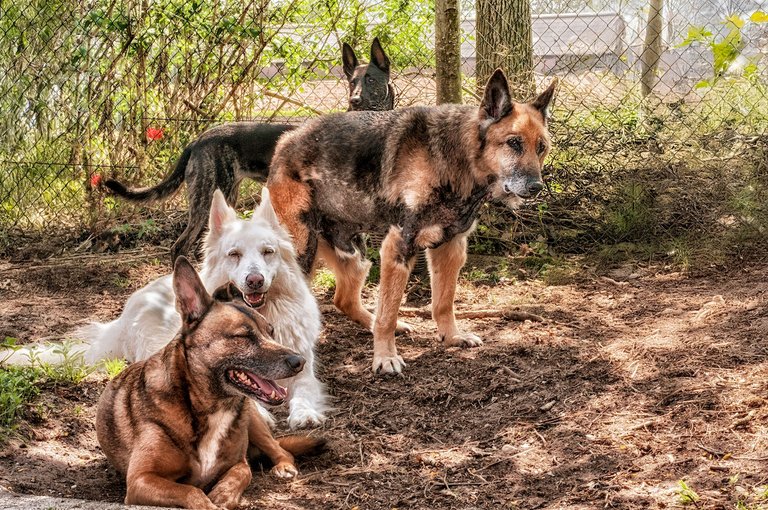
Intelligent, Affectionate, Loyal
Shepherd dogs are known worldwide for their intelligence, affection, mastery, and loyalty, but people often forget that a shepherd is also known for his drive to work. The character traits that make a shepherd so great to work with often bring challenges when they are kept as pets. The drive to work that every shepherd naturally possesses also means that they need a lot of exercise, mental stimulation, and training to stay balanced. When these needs are not met, behavioral problems can arise. Not everyone can or wants to meet the needs of the shepherd dog, which is undoubtedly one of the reasons why they end up in the shelter.
There are relatively few dogs in Dutch shelters. Especially compared to other countries, the Netherlands scores quite well in this respect. But among the dogs that end up in the shelter, there are relatively many shepherd dogs. And when I looked up some information on the internet, I discovered that this phenomenon does not only occur in the Netherlands, but also in countries such as the United States, the United Kingdom, and Germany. Here too, shepherd dogs are relatively often given up.
Then it is time to look further. What is behind this? Is there a logical explanation?
Shepherd Dogs Need More Than Just Love
Let's take a look at the character descriptions of the three Shepherd Dogs that you often encounter in shelters.
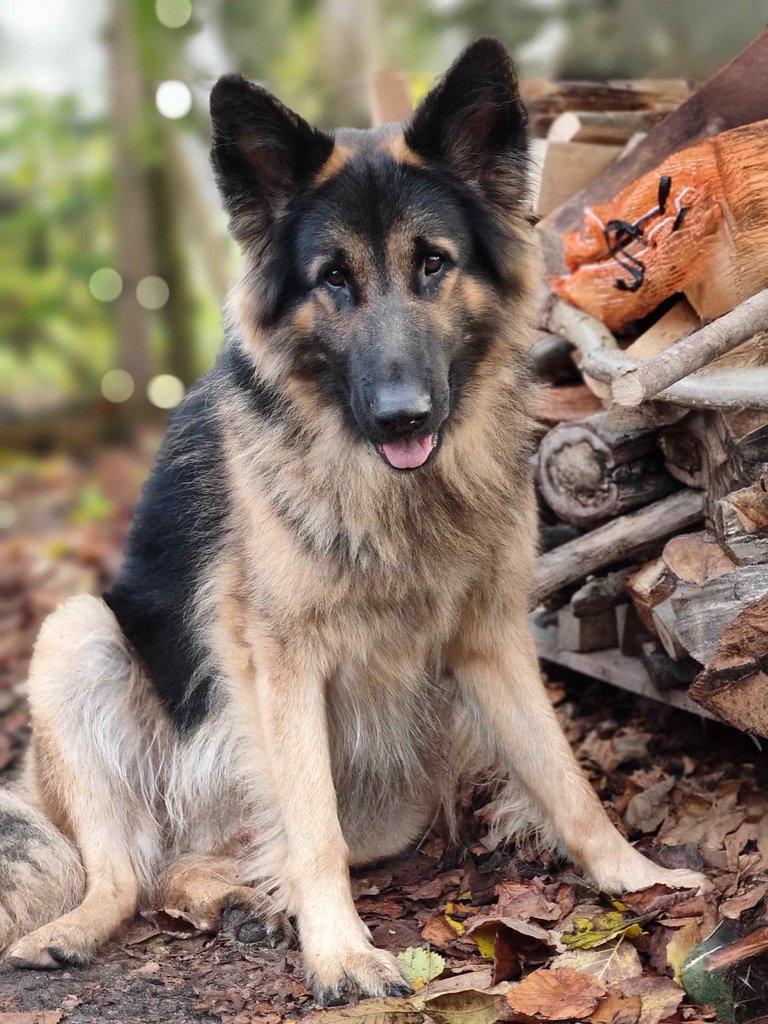
German Shepherd
Character: The German Shepherd is self-confident, courageous and intelligent. He is very loyal to his family and is an excellent watchdog. Due to his versatility and trainability, he is one of the most popular working dogs in the police, and army, and as a rescue dog.
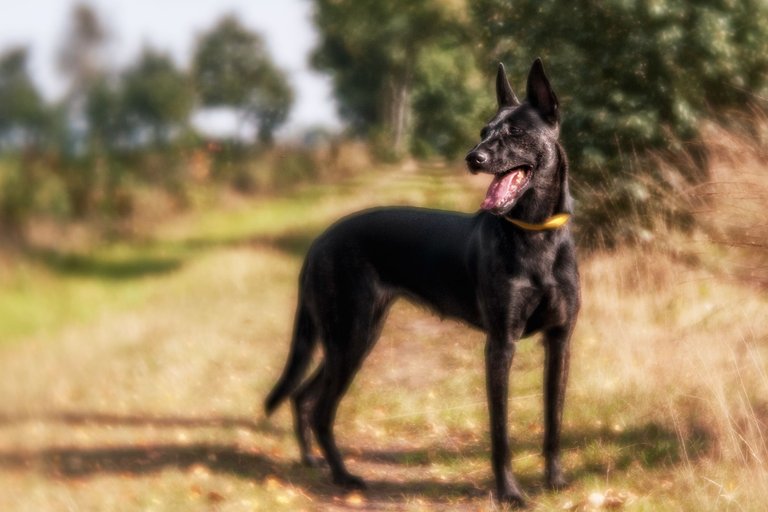
Dutch Shepherd
Character: The Dutch Shepherd is intelligent, vigilant, loyal and versatile. He is very obedient and has great stamina. Due to his alertness, he is an excellent watchdog, but he is also friendly and reliable in a family situation.
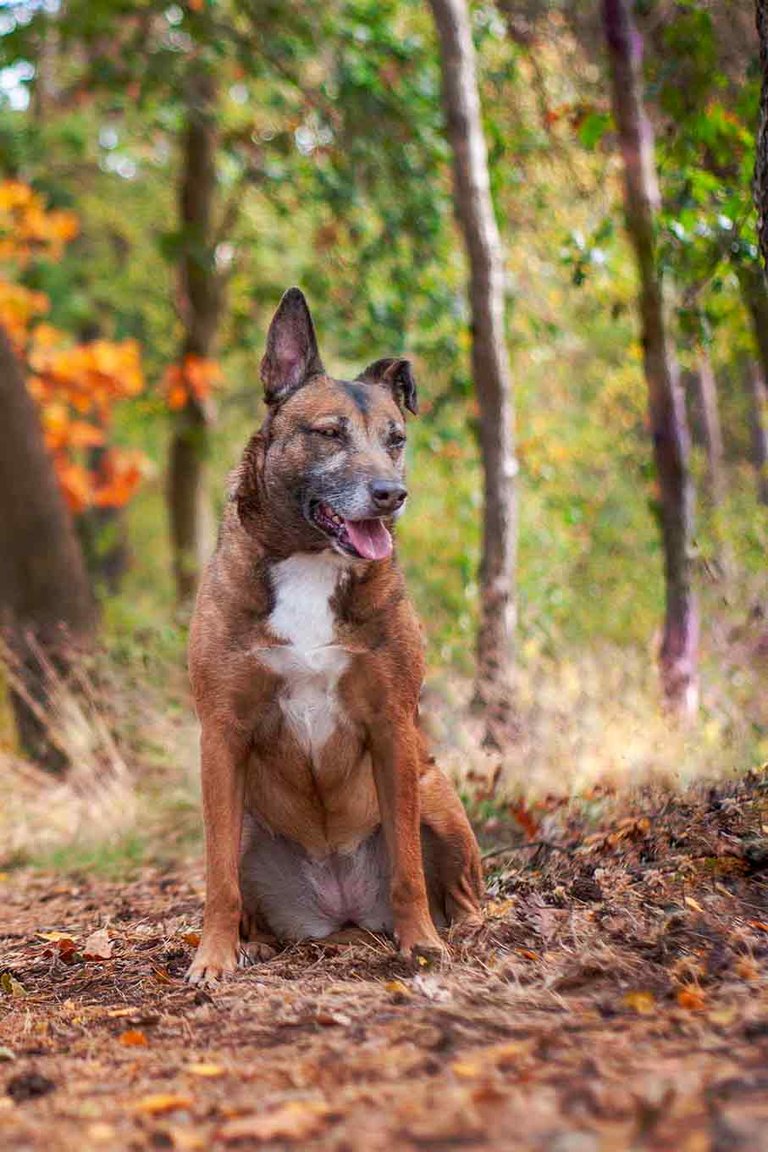
Malinois Shepherd
Character: The Malinois Shepherd is intelligent, alert, and extremely active. He is very loyal and protective of his family. Because of his courage, intelligence, and tireless energy, he is often used for police and security work. He has great stamina and a strong desire to work.
Many owners make incorrect estimates about what a shepherd needs. People often see the breed description that states that a dog is "intelligent, loyal, and protective", and think that you get these qualities as a gift when you buy a Shepherd puppy. People expect the dog to bring these qualities straight from the litter and are surprised that their dog is not as obedient as they expected. For some reason, not everyone understands that a dog can only develop and show these qualities when he is properly guided and trained.
To keep a Shepherd as a nice house dog, you don't have to take your dog to police dog training, but you will have to put the necessary time and effort into training your dog. The idea that you can get an obedient and calm shepherd with just one short walk a day is a misunderstanding that unfortunately still occurs too often.
Driven And Energetic
Every Shepherd dog has a good portion of Work drive and Energy. Originally, all three types of Shepherd dogs that you often encounter in the shelter or as a rehomer dog were developed to herd and protect cattle. Because these breeds turned out to be so exceptionally intelligent, trainable, and eager to work, their talents were later also applied in other areas of work. Today they mainly serve as rescue dogs, police dogs, military dogs, guard dogs, and drug detection dogs. These are just a few examples. What all this work entails is a lot of training and a lot of physical and mental stimulation for the dog. And that is exactly what a shepherd dog needs. Owners who are not aware of this need or cannot provide it unfortunately often conclude that the dog is not obedient, that he has developed problem behavior and ultimately decide that the dog is not what they expected, which is why they give him up to the shelter or offer him as a rehomer. Unfortunately, the dog is often labeled a "problem dog", while it was an unfortunate circumstance in which the owners did not meet the dog's needs.
Too Popular
The German Shepherd also has another factor against him. German Shepherds are impressive dogs to look at. The breed has been very popular for years, and the more popular a breed, the greater the chance that they end up in shelters. Again, this mainly has to do with the fact that future owners often do not delve sufficiently into their character.
What A Shepherd Dog Needs
Although a shepherd dog is indeed very trainable, sufficient time must certainly be spent on this. What people should also be aware of is that a shepherd dog needs a very consistent upbringing AND socialization. Does he not get this? Then this will almost certainly lead to behavioral problems. A shepherd dog that does not get enough training, challenge, and stimulation will look for an occupation itself. You could say, the work drive of the shepherd ensures that he gives himself a job. However, it will not be a job that you as an owner will be happy with. Excessive vigilance, uncontrolled hunting instinct, or destructive behavior. With insufficient socialization, they can develop fear, which causes fear aggression. A shepherd dog will never avoid a confrontation. Not even if he is anxious. All these factors increase the chance that they will be given up.
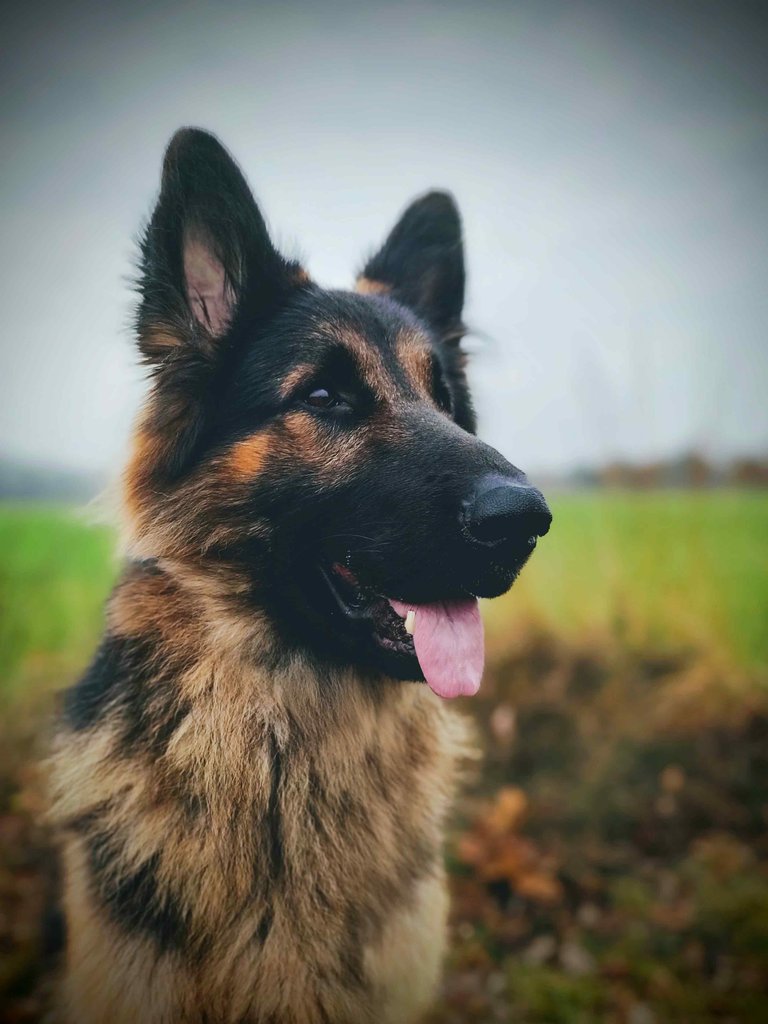
Skipper's Jobs
Skipper is now my fifth shepherd dog. And my fourth shepherd dog that I didn't buy and raise as a puppy. We now have some experience with training and raising shepherd dogs. And honestly, I'm glad I didn't get Skipper as my first shepherd dog because then I really wouldn't have known how to raise him. Even now, there are still a few things that aren't so easy to solve. We'll get there together, that much is certain. But the time I have to put into Skipper's training is considerable because of the problems he has from his past. Skipper is a very nice dog, a REAL German Shepherd, but in his past, he had problem owners who didn't understand his character. Who couldn't provide him with what he needed, which caused Skipper to have a mild form of fear aggression. He has also given himself a few jobs that we as an owner would rather not see. He thinks he works in security and he takes his job very seriously. He also thinks he's my bodyguard. He takes that job very seriously too. According to Skipper, I can be compared to the president of the United States and he doesn't let anyone near me that he doesn't know. Considering the character of the German Shepherd, that they never shy away from a confrontation, I don't agree with the jobs that Skipper has given himself. Training Skipper is therefore not easy and consists of a lot of distraction and giving him other tasks that develop other skills. This takes time, a lot of patience, and above all positive reinforcement. Trying to prevent him from falling back into his old roles. Even though it's not always easy, we won't give up on him. We will get there together. And luckily I can say this now, but if Skipper had been my first shepherd dog, the outcome would have been different!
Positive Training: The Key to Success
A well-behaved shepherd dog is the result of time, patience, and a positive approach. A hard hand or punishment does not work, and can even be counterproductive. Although you do not immediately expect it, shepherd dogs are very sensitive breeds. What works is positive reinforcement: rewarding good behavior and working patiently on a strong bond. The most important thing to remember is that Shepherds want to learn, they want to work, but they need an owner who understands this and can positively guide them so that the dog does not go looking for work itself but works with you and for you. If you are willing and in a position to invest that time and effort, you will get a fantastic, intelligent, and loyal companion in return.
This does not only apply to young Shepherds. Older Shepherds still have these qualities, and they deserve a chance too. A dog remains trainable and teachable throughout its life. They may no longer have the energy of a puppy, but that also has advantages for many people. And they are just as devoted and grateful to you as a puppy if you offer them a warm home. Lex was six years old when my partner took him out of the shelter, and he was the easiest dog for us, even though he was in the shelter because he had bitten half a flock of sheep to death together with his brother when he was 1 year old. With Lex, we experienced how grateful an older dog can be. Shepherd dogs often have a lot of love and energy left, even at an older age, and can be a great addition to a family.
Think Well
There are many people everywhere who adopt dogs. Adopting a dog always requires a serious approach. It is not something you should or can do on impulse. But adopting a shepherd dog does require more than adopting a small Cavalier King Charles Spaniel, for example. Shepherd dogs need an owner who is strong willing and able to invest his time. If you have a full-time job and only want to sit on the couch in the evenings to watch TV, a shepherd is probably not the right choice. Now I do not think that any dog deserves to be home alone all day. But if you are willing to reallocate your time and energy and actively involve your dog in your daily life, shepherds can be wonderful companions. You don’t have to do complicated dog sports to keep a shepherd happy. I have taken obedience classes with Rowan and Myla, but I have never done sports with them.
What I do do with all my shepherds is give them chores around the house. For example, They all love playing fetch. I take a ball with me on every walk and Skipper carries the ball for some parts of my walk, which he has to lay down while we walk, we walk on after that, leaving his precious ball behind. While walking, he does obedience exercises, and a long way further he suddenly has to go look for his ball again. This makes him think about where he had to let go of it. I also often hide tasty treats outside when he is inside. When we go outside, he has to look for it. This uses his brain and his nose. He also likes to help me with household chores, like taking the laundry basket outside. I tied a rope to the laundry basket, he pulls the laundry basket outside so I can hang the laundry. The next step is teaching him to take the laundry out of the basket and give it to me so I can hang it. Many shepherd dogs enjoy being involved in everyday chores around the house. It can be anything, be creative, and most importantly ...

All ears..
Beds! Very important. German Shepherd Dogs require their own room and their own queen-size bed.
Focus..
I agree 100% on this. Perhaps this is the most important training accessory a Shepherd owner can offer them.
They thought a basket in the living room was inferior, so we put a bed in the living room where they could lie down comfortably.
View or trade
LOHtokens.@ladiesofhive, you successfully shared 0.1000 LOH with @hetty-rowan and you earned 0.1000 LOH as tips. (9/20 calls)
Use !LADY command to share LOH! More details available in this post.
Your dogs are remarkably lovely and photogenic at the same time. Loved the one in the comments section LOL
!PIMP
View or trade
LOHtokens.@hetty-rowan, You have received 1.0000 LOH for posting in Ladies of Hive. We believe that you should be rewarded for the time and effort spent in creating articles. The goal is to encourage token holders to accumulate and hodl LOH tokens over a long period of time.
!PIMP the doggies and the owners who raise them :)